Yesterday the trend that took Twitter by storm was #MeTooMigrant. Under the hashtag, a group of people shared their ‘migrant’ stories of living away from home.
Simply put, from the comfort of their homes with access to all basic necessities, a privileged section of society decided that the way to highlight the plight of workers in India, was to say they were the same!
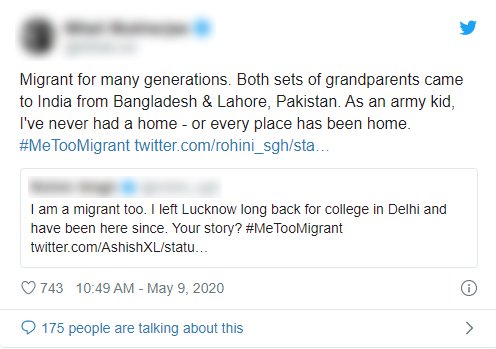
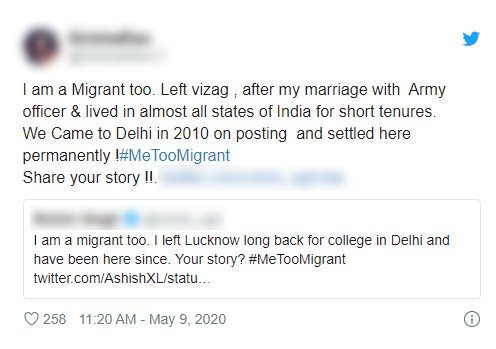
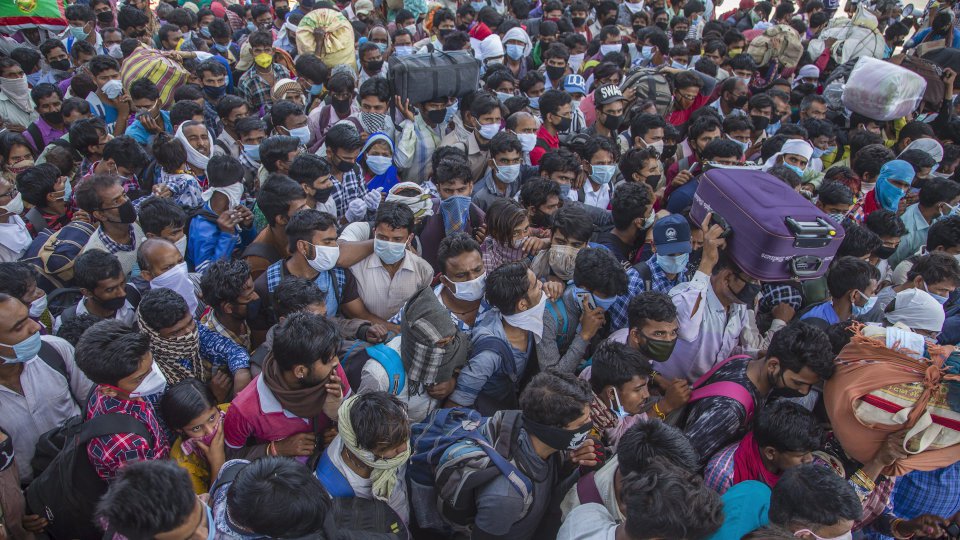
The world of keyboard warriors conveniently forgot that the very privilege that allows them to ‘tweet’ in anger, also dissociates them from the physical struggles of a worker walking hundreds of kilometers, with only one hope – to be with family.
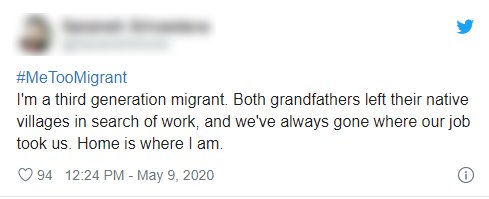
80% of the present officer workforce is posted out of their Hometown!! Many bankers r posted 2000-3000Km away from his hometown on account of transfer policy made by banks & this extransfer cycle repeats every 3-4 years!! Willingly or Unwillingly, its our Life Now.#MeTooMigrant
— BankersUnited@Official (@Bankers_United) May 9, 2020
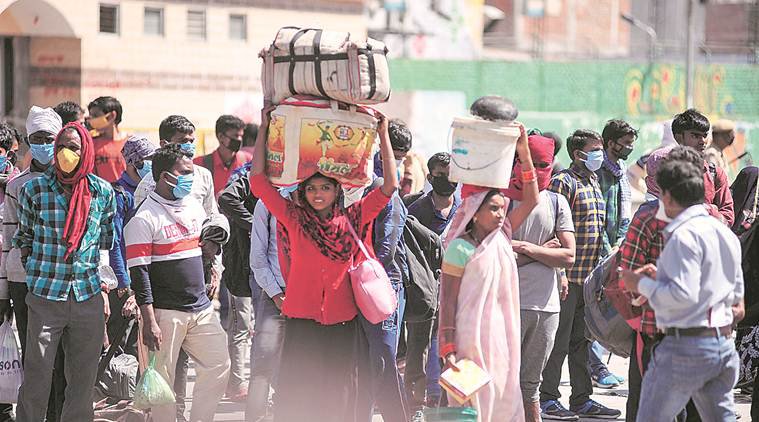
Reportedly, at the start, the purpose of the hashtag was to highlight the migrant workers’ crisis and the discrimination in the treatment of migrant workers from different income-groups.
That’s exactly what the point is. The conditions of migrants were brought up when the lockdown was announced. Nothing happened. Hell, liquor arrangements are being made but no provisions for them. So clearly, if we show solidarity and voice it, maybe they would take notice. https://t.co/t0Fmqyz1X9
— Kenny Sebastian (@knowkenny) May 9, 2020
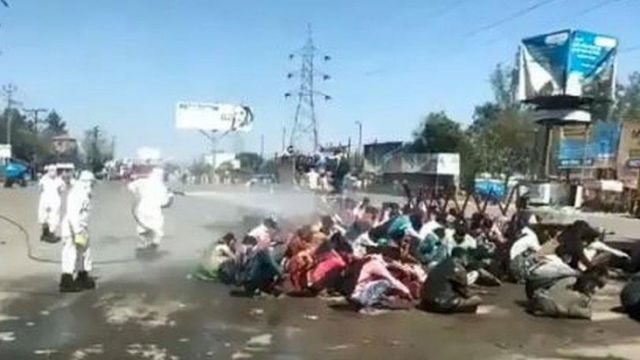
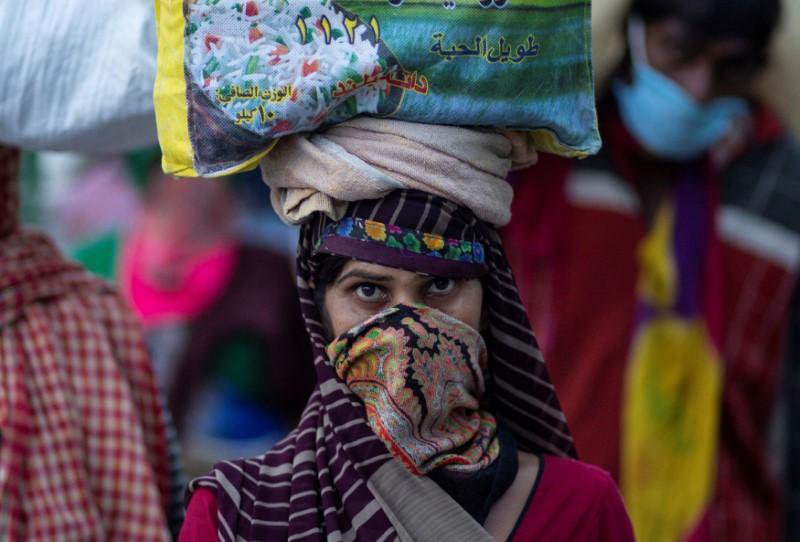
But, social media did what social media is infamous for – distorted the real purpose of the story to make a mockery of the plight of workers while tooting their own horn.
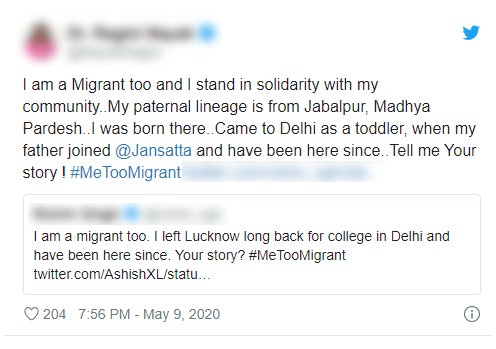
Citing examples of not being allowed enough leaves to head home or having to shift cities for work is an insensitive, apathetic take on the struggles of a worker who had to spend his entire life’s earnings on a train ticket. That too, for a journey that never materialized.
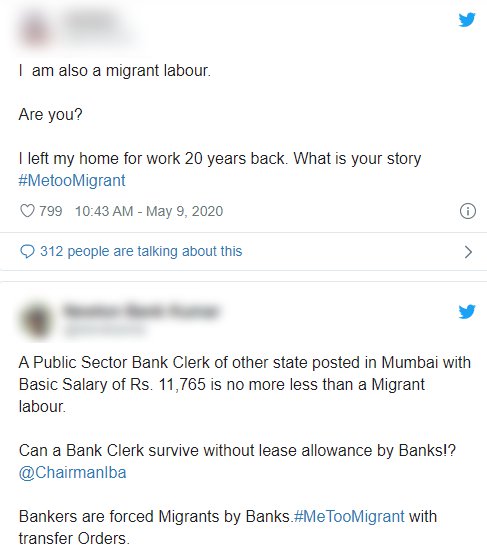
This is not to say that people who belong to a higher-income group can not have struggles.
But to compare them to the plight of migrant workers was akin to men responding to #MeToo stories with #NotAllMen. It just defeats the purpose and highlights your sense of entitlement.
This #MeTooMigrant has GOT TO be the most tasteless, insensitive @Twitter trend EVER! All Mercedes Marxists listing out their global travel footprints under the guise of sympathising with migrant labourers, making fun of poverty with their privilege. Sick people!
— Shefali Vaidya. (@ShefVaidya) May 9, 2020
What the fuck is a #MeTooMigrant? Liberal Indians living comfortably without jeopardizing their lives in any way are comparing themselves to India’s migrant laborers who have nothing to eat and are dying on the streets without transportation? Are you all seriously that dumb?
— Ayesha Ray (@DrAyeshaRay) May 9, 2020
#MeTooMigrant ???really!!??
— Mohd. Zeeshan Ayyub (@Mdzeeshanayyub) May 9, 2020
May be you guys should have added a ‘privileged’ somewhere!!
Yes, technically speaking, you may be a migrant too. But, if you have a roof on your head, food on your plate, job security, basic facilities, and the means to talk to your family, then you and the migrant workers hiding in cement mixers to find a way home are NOT the same.
#WATCH 18 people found travelling in the mixer tank of a concrete mixer truck by police in Indore, Madhya Pradesh. DSP Umakant Chaudhary says, “They were travelling from Maharashtra to Lucknow. The truck has been sent to a police station & an FIR has been registered”. pic.twitter.com/SfsvS0EOCW
— ANI (@ANI) May 2, 2020
The images that come to my mind when India’s migrant crisis is talked about, don’t include lapsed leaves, frequently changed homes, and annual trips back home.
No, they include Delhi’s crowded bus terminal, a 12-year-old girl collapsing after walking for four days, rotis flung alongside dismembered bodies on railway tracks.
Delhi: Migrant workers in very large numbers at Delhi’s Anand Vihar bus terminal, to board buses to their respective home towns and villages. They have walked to the bus terminal on foot from different parts of the city. pic.twitter.com/IeToP3hX7H
— ANI (@ANI) March 28, 2020
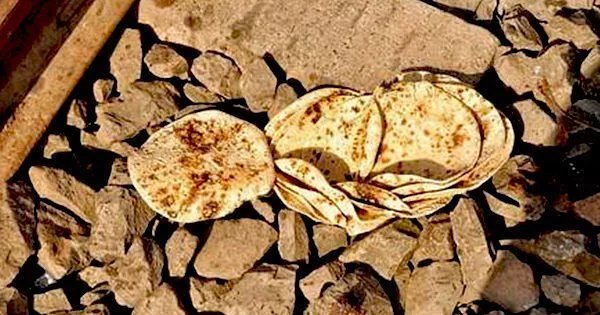
If not for these workers, whose plight has today been reduced to a single hashtag, India would still be struggling to build houses, work heavy machinery, harvest crop, clean sewage lines, and in some cases, even cook.
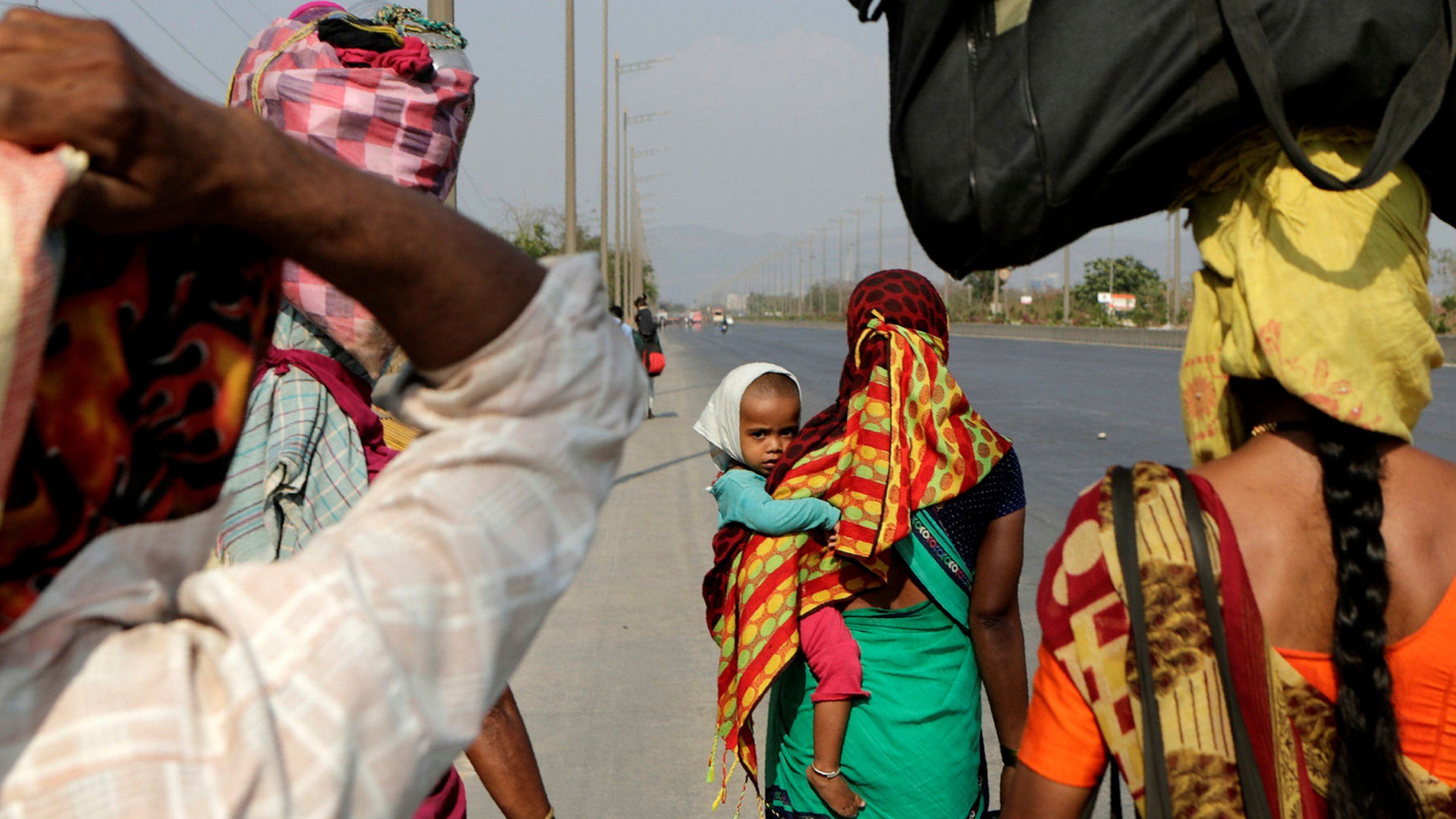
A hashtag, no matter how well-intentioned, will not save the lives of the migrant workers. If you really want to do your bit, help them in a more tangible manner.

















